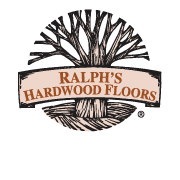Because trees are a natural plant, humidity has a significant impact on hardwood flooring. The effects vary depending on the climate, the quality of the wood, the type of finish, and more—but there will always be effects.
Wood expands or contracts with changes in relative humidity, which is the amount of moisture in the air compared to the maximum amount possible for that air's temperature before condensation begins (expressed as a percentage of actual moisture vs. maximum moisture).
Therefore, how stable your hardwood floors are (i.e., how much they resist contracting or expanding) depends on how stable the relative humidity is in your home.
Although infrequent, unextreme fluctuations in relative humidity are usually not problematic, too much or too little moisture can damage hardwood flooring or diminish its appeal over time.
When the relative humidity is continually higher than around 60% (which can easily happen in rainy climates and during hot summers), moisture can seep into the wood and cause it to expand. To limit contraction of the hardwood, try to never go lower than 30% relative humidity, even in the middle of a cold winter.
Anything between 40% and 50% is excellent year-round.
Smart management of your HVAC settings and (ideally) the use of a dehumidifier are how to achieve this optimal relative humidity. You don't have to overdo anything; you can stay perfectly comfortable. In fact, you can create conditions that are as comfortable as possible for you as well as your hardwood flooring.
You only need to strive to keep the humidity level as stable as possible—no matter what the weather is like outside!
One important note: some rooms—such as basements or bathrooms—can continually have so much moisture in the air that solid-plank hardwood flooring is inadvisable because the relative humidity will usually be too high, no matter what temperature you keep the room at or what efforts you make to remove moisture from the air. In these cases, high-quality engineered hardwood flooring is a superb alternative because of its greater stability than solid wood planks.
To learn more, contact Ralph’s Hardwood Flooring.















